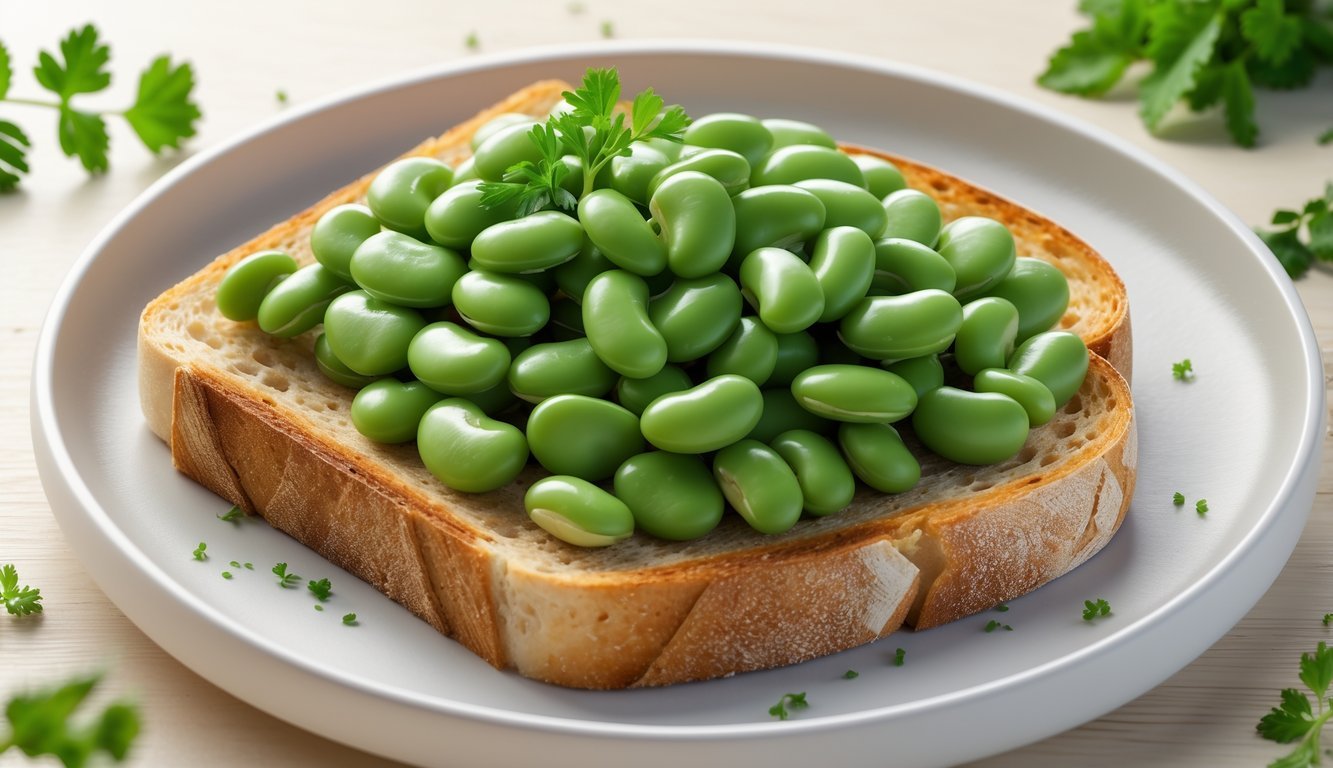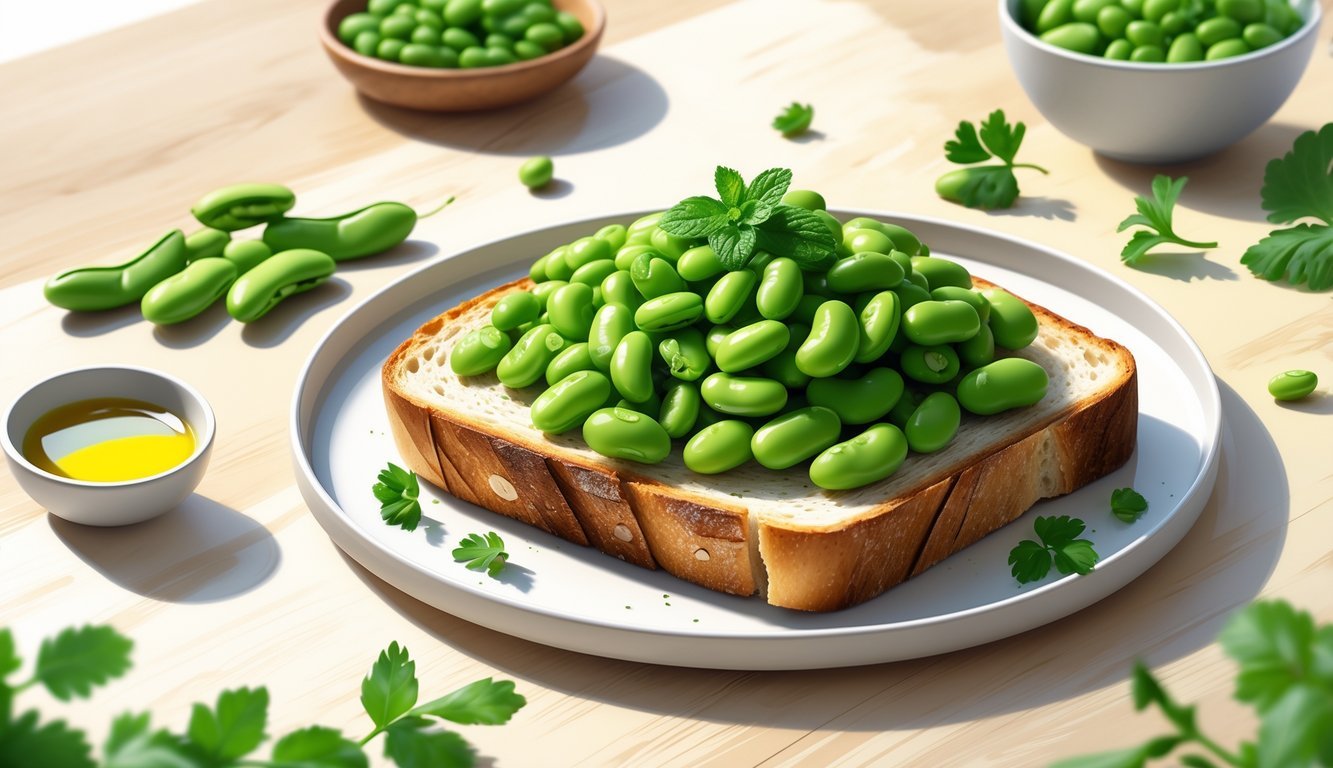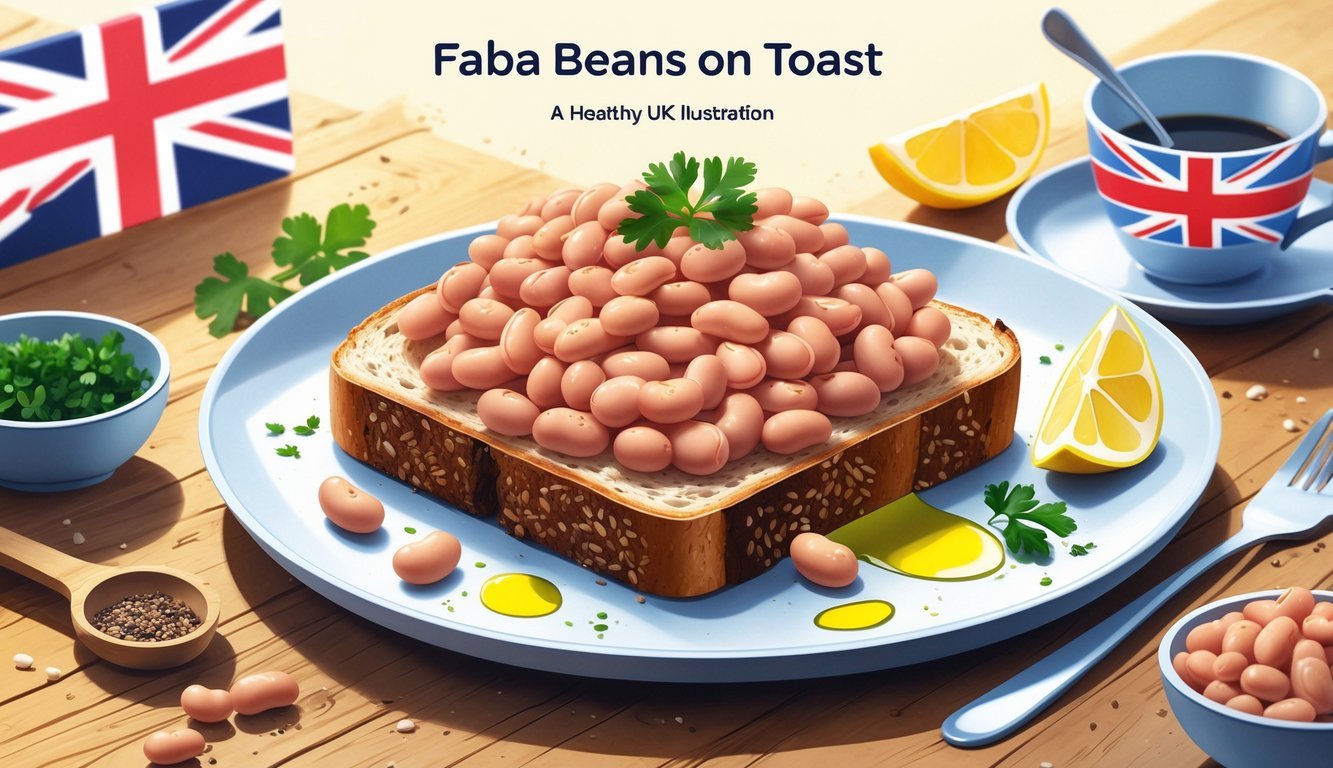PsychNewsDaily Publishers
100 Summit Drive
Burlington, MA, 01803
Telephone: (320) 349-2484
PsychNewsDaily Publishers
100 Summit Drive
Burlington, MA, 01803
Telephone: (320) 349-2484
Faba beans are nutrient-rich, providing protein, fiber, and iron, while promoting sustainability in the UK diet through local sourcing and reduced carbon footprints.

Faba beans—some folks call them broad beans—are a smart pick if you’re looking to eat better in the UK. They’re loaded with protein, fiber, and iron, all nutrients a lot of people just don’t get enough of.
When you use UK-grown faba beans in toast, you get an easy way to boost your meals without having to overhaul your routine. It doesn’t take much effort, honestly.
Faba beans aren’t just good for you—they’re more sustainable than most other protein sources. If you choose bread made with broad beans, you help cut down your environmental impact and add a bit of flavor and nutrition to a classic British snack.
This tiny swap can make a real difference, both for your health and for the planet. Why not give it a go?
You don’t have to be a chef to enjoy faba beans on toast. There are so many easy ways to use them, so it’s pretty versatile and fits right into daily life.
If you already like beans on toast, swapping in faba beans brings extra benefits but keeps that comforting taste. Seems like a win-win.

Faba beans boost nutrition and sustainability in a classic British dish. They add nutrients that many people miss out on, and you can use them in bread without relying on imported ingredients.
Your toast gets healthier and better for the environment at the same time. Not a bad combo.
Faba beans are rich in protein, which helps you build muscle and repair tissues. Unlike some plant proteins, faba beans have the essential amino acids your body needs.
They also offer a solid amount of fiber (or fibre), which supports digestion and helps you feel full longer. That means better satiety and fewer snack cravings.
Iron is another big one in faba beans. It fights tiredness and keeps your blood healthy.
When you eat faba beans on toast, you boost the nutritional quality of your meal, especially if you’re not getting enough of these nutrients in your regular diet.
Traditional toast toppings like butter or jam mostly add calories, not much else. Beans on toast is a comfort food in the UK, but using faba bean flour in white bread takes it up a notch.
You can swap out some imported soya flour and a bit of wheat flour for faba bean flour in bread. That means more protein and fiber baked right in, not just piled on top.
Your toast becomes a stronger protein source and gives you steady energy. That’s hard to argue with.
Faba beans help with sustainable development because they work as a nitrogen-fixing crop. They naturally improve soil health, so farmers don’t need as many chemical fertilizers.
When you use faba beans in bread, you help reduce imports of soya. That supports food security and keeps things more local.
The University of Reading joined the “Raising the Pulse” effort to get more pulse crops like faba beans into UK diets. Switching to broad bean bread supports a more sustainable food system and gives you a meal that’s both tasty and nutritious.

You can whip up tasty, healthy meals with simple ingredients and faba beans. Picking the right beans and preparing them well makes your toast more flavorful and nutritious.
Start by cooking faba beans until they’re tender. Mash them or leave them whole, then spread on toasted bread brushed with a little olive oil.
Add garlic for a bit of a kick—either cook it with the beans or rub it on the toast. Fresh herbs like parsley give color and extra taste.
If you want something creamy, try goat cheese or a dairy-free spread before adding the beans. Parmesan works too if you eat cheese.
For more texture, toss on some cherry tomatoes or sliced avocado. A poached egg on top makes it even more filling and adds protein.
UK-grown faba beans are fresh and support local farms. You’ll find them fresh in season or dried for longer storage.
If you use dried beans, soak them overnight and cook them well before adding to your toast. Fresh or frozen beans cook faster.
Faba bean flour is another way to use local beans. Mix it into bread or pancakes for extra fiber and protein.
Choosing UK-grown beans lowers your food’s carbon footprint and supports plant-based diets by offering a solid meat alternative.

Faba beans give you protein, fiber, and iron. You can add them to meals easily, and they help with digestion and energy.
You might wonder how to use them in everyday dishes or how they stack up against other beans.
Faba beans provide high-quality protein that’s easy to digest. They come with fiber for digestion and iron to support your blood health.
Yes, they can. The fiber in faba beans keeps you full longer, which may help you eat less and manage your weight.
Add fava bean flour to bread for a healthier toast. Beans on toast works with broad beans mixed with tomato sauce for extra nutrition.
Beans on toast is a good choice. Using faba beans gives you more protein and iron than regular beans, filling common gaps in UK diets.
Eating broad beans often can support healthy digestion and provide steady energy. The iron in them helps prevent anemia, especially if your diet is low in it.
Fava beans pack more iron than most other beans out there. Your body can absorb their protein pretty easily, too.
That gives them a bit of an edge when you’re looking at legumes. Honestly, they’re a solid choice if you want something nutritious.